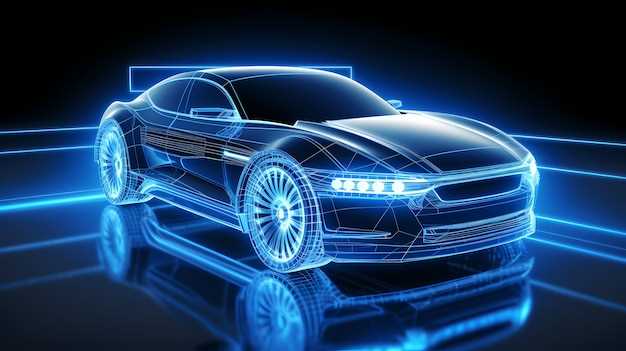
The Future of Audi’s Electric Vehicle Technology

Audi has long been synonymous with luxury and performance in the automotive industry, and its foray into electric vehicles (EVs) marks a significant chapter in its history. As the global demand for sustainable transportation alternatives grows, Audi has embraced innovation in the EV market, focusing on merging advanced technology with the brand’s renowned engineering. This commitment to electric mobility is not just a response to consumer demand but also a strategic move to position Audi as a leader in the rapidly evolving automotive landscape.
The company has dedicated substantial resources to research and development aimed at enhancing battery technology, increasing driving range, and improving overall vehicle performance. Key innovations include the development of the Volkswagen Group’s MEB platform, which underpins Audi’s electric models, ensuring efficiency and scalability. Through these efforts, Audi aims to deliver a seamless driving experience that aligns with modern consumer expectations while adhering to stringent environmental regulations.
Looking forward, Audi’s vision for the future is firmly anchored in sustainability and cutting-edge innovation. The brand is not only expanding its EV lineup, with models like the e-tron and Q4 e-tron, but also exploring avenues such as autonomous driving capabilities and integration with smart city technologies. These advancements reflect a broader commitment to ensuring that Audi remains at the forefront of the automotive industry’s shift towards electrification, positioning the company not just as a participant but as a pioneer in the world of electric vehicles.
Recent Technological Advancements in Audi’s EV Lineup
Audi has made significant strides in its electric vehicle (EV) technology, showcasing innovations that enhance performance, sustainability, and user experience. The launch of the Audi e-tron GT has marked a new chapter in performance EVs, featuring a dual-motor setup that delivers 637 horsepower and a 0-60 mph time of just 3.1 seconds. This model is built on the PPE (Premium Platform Electric), which supports a variety of body styles while optimizing battery placement for better weight distribution.
Another key advancement is the introduction of the 800-volt charging technology, allowing Audi EVs to charge at rates up to 270 kW. This capability can add approximately 180 miles of range in just 15 minutes, significantly reducing downtime during long trips. Coupled with an extensive network of fast chargers, Audi is committed to making electric mobility convenient and accessible.
Audi is also focusing on battery technology, employing advanced lithium-ion cells that improve energy density and longevity. The integration of vehicle-to-grid (V2G) technology enables Audi EVs to not only consume power but also return it to the grid, supporting energy management solutions and enhancing overall sustainability.
Moreover, Audi’s commitment to software development is evident through its over-the-air (OTA) updates, which ensure vehicles are always equipped with the latest features and optimizations. The progressive use of artificial intelligence in driving assistance systems exemplifies Audi’s dedication to safety and user experience, providing enhanced navigation and predictive maintenance.
Overall, Audi’s recent technological advancements in its EV lineup underscore its ambition to lead in the electric vehicle market, combining high performance with cutting-edge technology for an unparalleled driving experience.
Charging Infrastructure and Sustainability Goals for Audi EVs

Audi is actively investing in the development of a robust charging infrastructure that supports its growing portfolio of electric vehicles (EVs). Recognizing the importance of convenient and accessible charging options, Audi has partnered with various charging networks to enhance the availability of charging stations across urban and rural areas. This initiative aims to alleviate range anxiety among potential EV owners and promote the transition to electric mobility.
In addition to expanding charging facilities, Audi is committed to sustainability in every aspect of its EV production and operation. The company’s sustainability goals emphasize reducing carbon emissions throughout the lifecycle of its vehicles. This includes utilizing renewable energy sources in manufacturing processes and ensuring that the materials used in EV production are sourced responsibly.
Audi is also implementing innovative technologies to optimize the charging experience, such as faster charging solutions and smart grid integration. These advancements not only improve the efficiency of charging but also align with Audi’s broader mission to support environmental conservation. By minimizing the carbon footprint of its electric vehicles, Audi is setting an example for the automotive industry and demonstrating its commitment to a sustainable future.
Furthermore, Audi is focusing on the development of a circular economy within its EV strategy. This approach encourages recycling and reusing materials, ensuring that components from end-of-life vehicles are reintegrated into new production cycles. By prioritizing sustainability in its EV ecosystem, Audi aims to contribute significantly to a cleaner and greener environment for future generations.
In conclusion, Audi’s emphasis on developing a comprehensive charging infrastructure and pursuing ambitious sustainability goals reflects its dedication to becoming a leader in the electric vehicle market. As Audi continues to innovate and expand its EV offerings, it remains committed to providing a sustainable transportation solution that meets the demands of modern consumers.
Market Trends and Consumer Preferences in Audi Electric Vehicles

In recent years, the automotive industry has witnessed a significant shift towards electric vehicles (EVs), and Audi has been at the forefront of this evolution through its commitment to innovation. As consumers increasingly demand sustainable mobility solutions, Audi’s electric vehicles are adapting to meet these evolving preferences.
Current market trends indicate a growing desire for eco-friendly vehicles. Consumers are prioritizing sustainability, influencing their purchasing decisions. Audi’s electric lineup is positioned to capitalize on this trend, offering models that combine luxury with environmental responsibility. The Audi e-tron series exemplifies this approach, providing not just electric mobility but also advanced technology and premium features.
Furthermore, the shift towards urbanization has led to an increased demand for compact electric vehicles, which are perceived as more practical for city driving. Audi has recognized this need and is actively developing smaller models that cater to urban dwellers, ensuring they remain competitive in a rapidly changing market.
Another key aspect of consumer preferences is the emphasis on performance. Today’s EV buyers are looking for vehicles that not only minimize their carbon footprint but also deliver on speed, handling, and overall driving experience. Audi’s electric innovations, including its Quattro all-wheel drive technology, have set a standard for performance in electric mobility.
In addition to performance, connectivity and technology are crucial factors influencing consumer choices. With the rise of digital technology, consumers expect their vehicles to integrate seamlessly with their digital lifestyles. Audi’s focus on in-car connectivity and smart features addresses this demand, enhancing user experience and making their electric vehicles more appealing.
Finally, government regulations and incentives are shaping the market. As many countries implement stricter emissions standards and offer incentives for electric vehicle owners, consumers are becoming more inclined to consider electrification. Audi’s proactive stance in developing a robust range of electric vehicles positions it well to navigate these regulatory landscapes while appealing to environmentally conscious consumers.
In summary, the convergence of sustainability, performance, urban practicality, technological integration, and regulatory incentives are defining the market trends and consumer preferences for Audi‘s electric vehicles. As Audi continues to innovate, it remains well-positioned to lead the charge in the electric vehicle landscape.